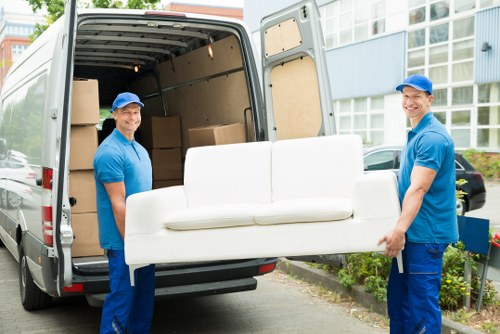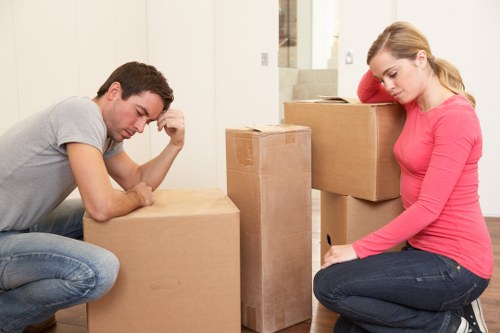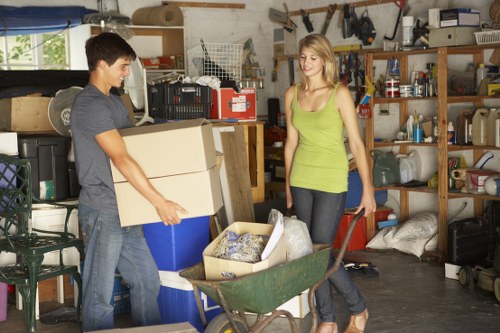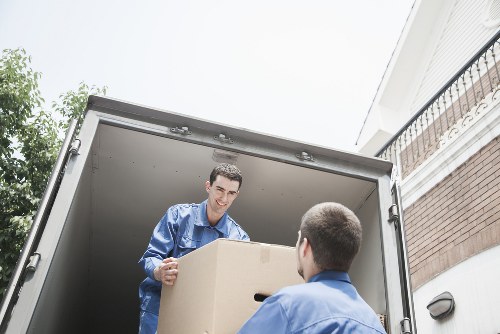Council Rubbish Collection West London

Managing household waste is a crucial aspect of maintaining a clean and healthy environment. In West London, the council rubbish collection services play a vital role in ensuring that residents dispose of their waste efficiently and responsibly.
The council provides a structured schedule for rubbish collection, helping to keep the neighborhoods tidy and reducing the risk of pests and pollution. Understanding how these services work can help residents make the most of them and contribute to a sustainable community.
West London covers a diverse range of areas, each with its unique characteristics and waste management needs. From bustling urban centers to quiet suburban streets, the council tailors its rubbish collection services to meet the specific requirements of each locale.
Understanding Council Rubbish Collection

Council rubbish collection involves the regular collection of household waste, including general rubbish, recycling, and bulky items. The service is designed to be convenient and accessible to all residents, ensuring that waste is managed effectively.
The collection schedule typically follows a weekly or bi-weekly routine, depending on the area and the volume of waste generated by households. Residents are encouraged to separate their waste into appropriate categories to facilitate recycling and reduce the amount of rubbish sent to landfills.
In addition to regular rubbish collection, the council may offer special services for disposing of hazardous waste, electronics, and large bulky items that cannot be collected during standard pick-ups.
Recycling Initiatives

Recycling is a key component of the council's rubbish collection strategy. By encouraging residents to sort their waste, the council aims to reduce the environmental impact of household rubbish and promote sustainable living practices.
Residents are provided with separate bins for recyclables such as paper, plastics, metals, and glass. Proper sorting ensures that recyclable materials can be efficiently processed and reused, minimizing the need for new resources and reducing energy consumption.
The council also runs educational campaigns to raise awareness about the importance of recycling and to guide residents on best practices for waste separation and disposal.
Tips for Efficient Rubbish Collection

Participating actively in the council's rubbish collection services can enhance the effectiveness of waste management in West London. Here are some tips to ensure efficient rubbish disposal:
- Sort Your Waste: Separate recyclables from general rubbish to facilitate proper processing.
- Follow Collection Schedules: Adhere to the designated pick-up days to avoid missed collections.
- Prepare Your Bins: Ensure that lids are closed and bins are placed in the correct locations for easy access by collection crews.
- Handle Bulky Items Carefully: Schedule special collections for large items to prevent obstruction and ensure safe disposal.
- Minimize Waste: Reduce, reuse, and recycle to decrease the overall volume of rubbish generated.
Handling Special Waste

Certain types of waste require special handling due to their hazardous nature or size. The council provides specific guidelines for disposing of such items safely:
- Hazardous Waste: Includes chemicals, paints, batteries, and electronics. These should be taken to designated collection centers.
- Bulky Items: Furniture, appliances, and other large items should be scheduled for special collection to prevent damage and ensure proper disposal.
- Garden Waste: Organic waste from gardens should be composted or collected separately to promote environmental sustainability.
Nearby Areas and Their Rubbish Collection Services

West London encompasses a variety of neighborhoods, each benefiting from tailored rubbish collection services. Here are some of the closest areas and their unique features related to waste management:
- Ealing: Known for its green spaces, Ealing emphasizes recycling and composting initiatives to maintain its parks and gardens.
- Hammersmith: With a mix of residential and commercial areas, Hammersmith offers flexible collection schedules to accommodate high waste volumes.
- Hounslow: Hounslow focuses on reducing landfill waste through extensive recycling programs and educational outreach.
- Brentford: Brentford integrates modern waste processing facilities to handle its diverse waste streams efficiently.
- Chiswick: Chiswick promotes community-driven waste reduction projects, encouraging residents to participate actively.
- Acton: Acton's rubbish collection services include frequent pickups during peak seasons to manage increased waste.
- Richmond: Richmond prioritizes eco-friendly waste management practices, aligning with its commitment to sustainability.
- Willesden: Willesden offers comprehensive bulky waste collection services to address the needs of its dense population.
- Kilburn: Kilburn emphasizes recycling education to improve participation rates among residents.
- North Acton North Acton integrates advanced waste sorting technologies to enhance recycling efficiency.
- Shepherd’s Bush: Shepherd’s Bush provides specialized collection for electronic waste, ensuring safe disposal.
- Southall: Southall focuses on reducing textile waste through donation and recycling programs.
- West Kensington: West Kensington collaborates with local businesses to manage commercial waste effectively.
- Perivale: Perivale supports community clean-up events to complement regular rubbish collection services.
- Palmerston: Palmerston promotes zero-waste initiatives, encouraging residents to minimize their rubbish footprint.
Challenges and Solutions in Rubbish Collection

Despite the efficient systems in place, rubbish collection in West London faces several challenges. Understanding these issues is the first step toward finding effective solutions:
- Increasing Waste Volumes: Population growth leads to higher waste production, straining existing collection services.
- Recycling Contamination: Improper sorting can contaminate recyclables, making them unsuitable for processing.
- Bulky Waste Disposal: Managing and disposing of large items require additional resources and logistical planning.
- Environmental Impact: Ensuring that waste collection practices minimize environmental harm is an ongoing concern.
- Public Awareness: Educating residents about effective waste management practices remains a critical challenge.
Innovative Solutions

To address these challenges, the council is implementing various innovative solutions:
- Advanced Sorting Technologies: Investing in state-of-the-art sorting facilities to improve recycling rates and reduce contamination.
- Community Engagement: Launching awareness campaigns and community programs to educate residents about waste management.
- Flexible Collection Schedules: Adapting collection times based on seasonal needs and waste volume trends.
- Collaborative Partnerships: Partnering with local businesses and organizations to enhance waste management efforts.
- Eco-friendly Initiatives: Promoting zero-waste practices and supporting sustainable living projects within the community.
The Importance of Responsible Rubbish Collection

Responsible rubbish collection is essential for several reasons:
- Environmental Protection: Proper waste management reduces pollution and conserves natural resources.
- Public Health: Effective rubbish collection minimizes the risk of disease and promotes a healthier living environment.
- Aesthetic Value: Clean streets and neighborhoods enhance the overall appearance and quality of life.
- Economic Benefits: Efficient waste management can lower costs associated with pollution control and public health.
- Community Well-being: A well-maintained environment fosters a sense of pride and community among residents.
How Residents Can Contribute

Residents play a crucial role in the success of rubbish collection services. Here’s how you can contribute:
- Stay Informed: Keep track of your local collection schedules and any changes or updates.
- Proper Sorting: Separate your waste accurately to facilitate efficient recycling and disposal.
- Reduce Waste: Minimize the amount of rubbish you generate by reusing items and avoiding single-use products.
- Participate in Programs: Engage in community clean-ups and recycling initiatives to support local efforts.
- Report Issues: Notify the council about any problems with rubbish collection services to help improve the system.
Future of Rubbish Collection in West London

The future of rubbish collection in West London looks promising, with ongoing advancements and proactive measures aimed at enhancing waste management systems:
- Sustainable Practices: Emphasizing sustainable waste management practices to align with environmental goals.
- Technology Integration: Incorporating smart technologies to optimize collection routes and improve service efficiency.
- Expanded Recycling Programs: Broadening recycling initiatives to cover more types of materials and reduce overall waste.
- Community Involvement: Increasing community participation through education and incentive programs.
- Policy Development: Implementing policies that support effective and environmentally friendly rubbish collection.
Looking Ahead

As West London continues to grow and evolve, so too will its rubbish collection services. The council is committed to staying ahead of the curve by adopting innovative solutions and fostering a culture of sustainability among residents. By working together, the community can ensure a cleaner, healthier, and more sustainable environment for future generations.
Investing in infrastructure, embracing new technologies, and prioritizing environmental stewardship will be key components in the ongoing success of rubbish collection services in West London.
Residents are encouraged to remain engaged and proactive in their waste management practices, contributing to the collective effort of maintaining a pristine and vibrant West London.
Frequently Asked Questions

1. How can I find out my rubbish collection schedule in West London?
You can find your specific rubbish collection schedule by visiting your local council’s website or contacting their customer service. Many councils also provide online tools where you can enter your postcode to get detailed information.
2. What items are not accepted in regular rubbish collection?
Items such as hazardous waste, electronics, large bulky items, and certain types of recycling materials are typically not accepted in regular rubbish collection. These items usually require special disposal methods or dedicated collection services.
3. How should I prepare my bins for rubbish collection?
Ensure that all rubbish is securely bagged and that bins are placed in their designated collection areas on the correct collection day. Make sure the bins are easily accessible and that lids are securely closed to prevent spillage and pest issues.
4. Are there any fines for not complying with rubbish collection guidelines?
Yes, councils may impose fines for not following rubbish collection guidelines, such as placing waste out on the wrong day, not sorting recyclables properly, or disposing of prohibited items incorrectly.
5. How can I dispose of large bulky items in West London?
Large bulky items can be disposed of by scheduling a special collection with your local council. Alternatively, you can take them to designated recycling centers or waste disposal sites that accept bulky waste.